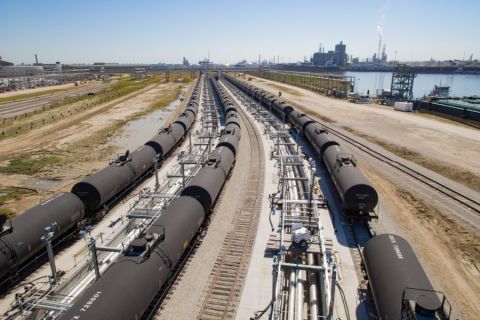The Group of Seven price cap on Russian seaborne oil came into force on Dec. 5 as the west tries to limit Moscow's ability to finance its war in Ukraine, but Russia has said it will not abide by the measure even if it has to cut production.
So far, Russia's ESPO oil blend from the Far Eastern port of Kozmino was selling for around $79 a barrel in Asian markets on Dec. 5 - almost a third higher than the new price caps, according to Refinitiv data and estimates from industry sources.
The price cap, to be enforced by the G7, the European Union and Australia, comes on top of the EU's embargo on imports of Russian crude by sea and similar pledges by the United States, Canada, Japan and Britain.
It allows Russian oil to be shipped to third-party countries using G7 and EU tankers, insurance companies and credit institutions, only if the cargo is bought at or below the price cap.
Because the world's key shipping and insurance firms are based in G7 countries, the cap could make it difficult for Moscow to sell its oil for a higher price.
Russia, the world's second-largest oil exporter, said on Sunday it would not accept the cap and would not sell oil that is subject to it, even if it has to cut production.
Selling oil and gas to Europe has been one of the main sources of Russian foreign currency earnings since Soviet geologists found oil and gas in the swamps of Siberia in the decades after World War Two.
A source who asked not to be identified due to the sensitivity of the situation told Reuters that a decree was being prepared to prohibit Russian companies and traders from interacting with countries and companies guided by the cap.
In essence, such a decree would ban the export of oil and petroleum products to countries and companies that apply it.
Still, with the price cap set at $60 per barrel, not much below the $67 level where it closed on Dec. 2, the EU and G7 countries expect Russia will still have an incentive to continue selling oil at that price, while accepting smaller profits.
The level of the cap is to be reviewed by the EU and the G7 every two months, with the first such review in mid-January.
"This review should take into account...the effectiveness of the measure, its implementation, international adherence and alignment, the potential impact on coalition members and partners, and market developments," the European Commission said in a statement.
The cap on crude will be followed by a similar measure affecting Russian petroleum products that will come into force on Feb. 5, though the level of that cap has not yet been determined.
Russia exports up to 65 million tons of ESPO Blend oil per year via the Eastern Siberia-Pacific Ocean (ESPO) pipeline, including up to 35 million tons through the port of Kozmino.
Recommended Reading
Canadian Railway Companies Brace for Strike
2024-04-25 - A service disruption caused by a strike in May could delay freight deliveries of petrochemicals.
Talos Energy Expands Leadership Team After $1.29B QuarterNorth Deal
2024-04-25 - Talos Energy President and CEO Tim Duncan said the company has expanded its leadership team as the company integrates its QuarterNorth Energy acquisition.
Energy Transfer Ups Quarterly Cash Distribution
2024-04-25 - Energy Transfer will increase its dividend by about 3%.
Guyana’s Stabroek Boosts Production as Chevron Watches, Waits
2024-04-25 - Chevron Corp.’s planned $53 billion acquisition of Hess Corp. could potentially close in 2025, but in the meantime, the California-based energy giant is in a “read only” mode as an Exxon Mobil-led consortium boosts Guyana production.
CNX, Appalachia Peers Defer Completions as NatGas Prices Languish
2024-04-25 - Henry Hub blues: CNX Resources and other Appalachia producers are slashing production and deferring well completions as natural gas spot prices hover near record lows.





